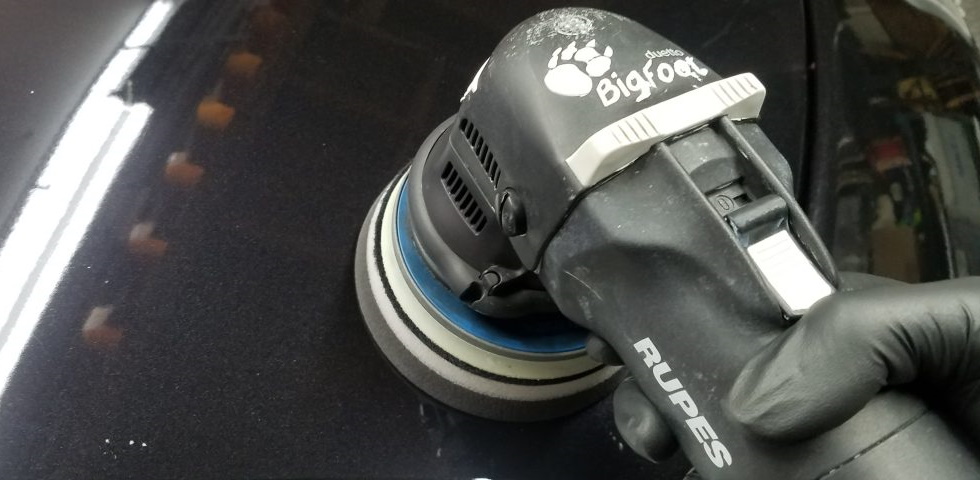When talking to a business owner of detailing, enthusiastically explaining the reason why in a process or use of a product is typically a good sign. I want you to keep that in mind when you are reading my tips for finding a trustworthy professional detailer.
As a consumer here are some things for you to think about (BE CONCERNED ABOUT).
1.) That six-month sealant may need 6 to12 hours or more to cure, but the detailer says “you will have the car back in the evening in 3 hours”. By cure time I am referring to the time a protective product needs in a pristine environment to completely form a bond, therefore achieving its full potential. Some products DO cure faster than others, but if you ask about the availability of your car with respect to that and the business owner seems mentally lost or obviously confused, it may be a red flag. This is especially the case with ceramic coatings. It is likely a ceramic coating service will come with additional instructions from the business owner, with respect to how long you need to wait before washing and the kinds of maintenance products that can be applied.
2.) Signs that removing bonded contamination is not a priority in a detail. Eliciting trust is a process and so is detailing. The use of the word decontamination and understanding the meaning in a conversation is a step in the right direction. Realistically, even newly transported cars have bonded contamination on the painted surfaces. Bonded contamination is often the invisible grime that is remaining after a gentle car wash. Removing improves the appearance of your car noticeably and may in some cases protect your car over time from additional damage. But removing all of the bonded contamination from your paint may allow a paint sealant (definitely a coating) to perform optimally and potentially last longer. The use of a thorough (not light) clay bar treatment is an example of a decontamination step. The use of an iron removal product is another example. I generally at least use both products. I believe that should be the case when a long-term ceramic coating is being applied. The reason being iron removal products excel in removing particles that clay sometimes struggles to pull from your paint.
3.) Giving the option of light polish after a clay bar treatment is a good sign. I understand a wash, clay, and seal only service may provide you GREAT value. Although it is often minor, you may find yourself disappointed to see at some point with the potential accumulation of micro marring on your first black car or garage kept weekend car that you have pampered. Although (myself included) some businesses do not offer a clay bar service without some form of polishing, there is nothing wrong with a more budget-friendly option (clay bar and seal without polishing) if that is what both you and the business are in agreement on.
4.) What level/kind of quality of products are being used? Care (more so in the long term – often means more much more expensive wider variety and significantly more time). Just in general if I did not care about staining (short or long term) your interior, excessively wetting your fabric (potentially creating many problems) I could shave off a third to half of my time doing interior details. This time disparity increases when we talk about chemical use in the nooks and crannies. It is okay to ask what kind of products are used on an interior detail!
5.) Someone that can too easily answer your questions without seeing or even knowing anything about your car, to me is a problem. Show me someone who will tell you they can polish every imperfection over the phone without observation (pic or in person) and I will show you someone who will have no credibility with me. An interior detail quote where little interest is shown in seeing the condition of the car, screams someone who will be working to a time clock instead of the end goal of meticulously detailing. Does this person ask or care to know what kind of material is on the interior of your car? There are so many products that work well on some seats and plastic parts, that can do short and long-term damage to others.
6.) For those that are looking for someone to perform an extensive paint correction on their car: did the business owner tell you that a two-step correction takes about the same time or only slightly longer than a single-step correction? I can assure you that should not be the case! The time taken should be significantly longer!
7.) With respect to your genuine curiosity about the detailing process are they dismissive or inviting? I am going to be very blunt here! I have very little patience or tolerance for consumers who flaunt their supposed detailing acumen towards me. I am also on guard about confrontational or unreasonably demanding potential customers. There are a lot of those individuals. A demeaning experience is not worth the money. With that in mind, I know the difference between a negative person full of ego versus someone who is being thoughtfully inquisitive. I embrace someone who is just respectfully curious and has a genuine concern about who touches his or her car. I am one of those people too! Most of my experiences in mobile settings convey the energy of a friendship between client and detailer. This is probably the most significant advice I can give you. Assuming you are being respectful, if someone is being dismissive with regards to your curiosity, questions, or concerns, that is probably the most obvious and concerning red flag I can imagine.
